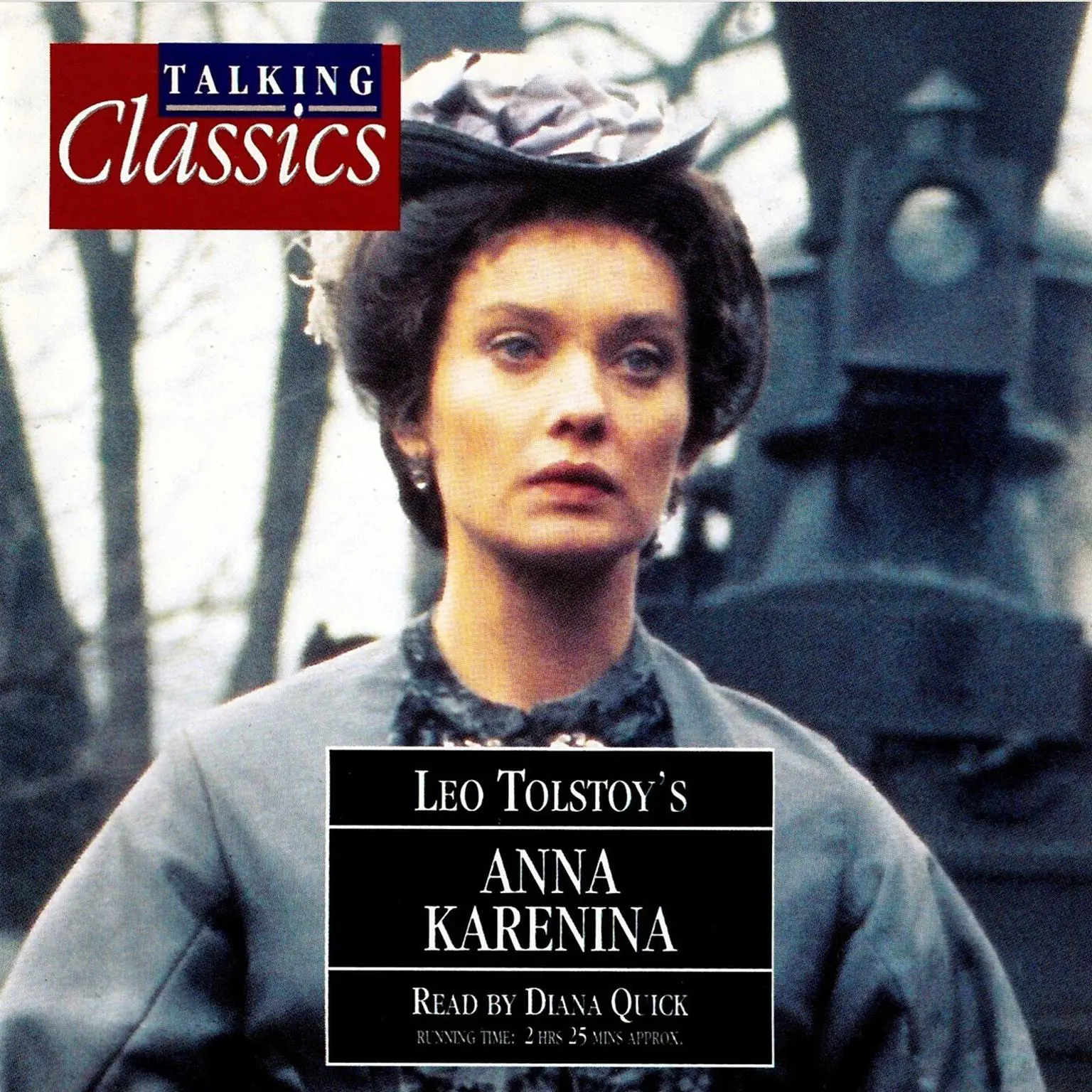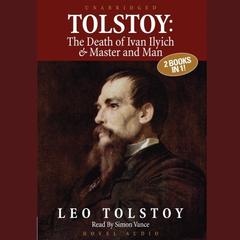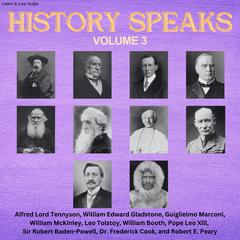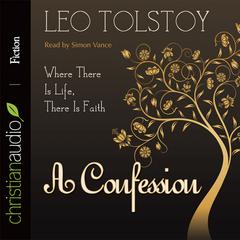 Play Audiobook Sample
Play Audiobook Sample
Anna Karenina (Abridged) Audiobook
 Play Audiobook Sample
Play Audiobook Sample
Quick Stats About this Audiobook
Total Audiobook Chapters:
Longest Chapter Length:
Shortest Chapter Length:
Average Chapter Length:
Audiobooks by this Author:
Publisher Description
Towering over the other characters, Tolstoy’s beautiful tragic heroine, Anna Karenina, dominates the action of the great book which bears her name. Anna is sensitive, generous, warm-hearted and intelligent, but all her virtues count for nothing when she is overcome by passionate love for Count Vronsky. Handsome and sensual, Vronsky is everything Anna’s dry, legalistic husband is not. Their love, which flouts the rigid laws of marriage, proves disastrous. Russian high society will not forgive their breach of convention and ultimately, ostracised and humiliated, Anna seeks only oblivion. 1. THE FIRST MEETING. Going to Moscow to help to save her brother Stiva’s marriage, Anna travels in the same compartment as Countess Vronsky and so meets her son, the dashing Count Vronsky. When a railway worker is run over by a train, Vronsky gives his widow 200 roubles. This strengthens the impression he has made on Anna. On seeing on her sister-in-law, Dolly, Anne argues her to forgive Stiva’s infidelity. Peace is restored in the household, but Anna decides to return to her husband and son in Petersburg immediately, afraid of the attraction she feel for Vronsky. 2. FIGHTING LOVE. On the train back to Petersburg, Anna discovers that Vronsky has followed her. She tries to put him off but her efforts are in vain, as he can read the love in her eyes. Arriving at the station, Anna is met by her sarcastic husband Karenin, who snubs Vronsky. Soon Anna and Vronsky are the subject of malicious gossip in upper-class circles. Anna tries to suppress her feelings for Vronsky, but at a meeting in the house of the socialite Princess Betsy, his passion for her becomes so obvious that all the rumours are redoubled. Only Karenin prefers not to see. 3. CONSEQUENCES. Karenin warns Anna against embarking on an affair with Vronsky, but she mocks him and their marriage becomes even more of a sham. After holding out for a year, Anna takes Vronsky as her lover. When she becomes pregnant, Vronsky insists that Karenin is informed and a divorce sought. Anna is reluctant, she fears that she will lose her son, Seriozha, but Vronsky does not understand her worries. 4. AT DEATH’S DOOR. Karenin buries himself in work and becomes cold and unfeeling towards Seriozha. When he asks Anna to behave with propriety in public, she breaks down and confirms his worst fears. In giving birth to Vronsky’s daughter, Anna become ill with puerperal fever. Karenin hurries back from Moscow to find her delirious. Overwhelmed by grief, he forgives her completely. Vronsky is overcome with self-disgust and the realisation that if Anna lives, he should not come between her and her forgiving husband. Despairing, he shoots himself. 5. LOVERS ABROAD. After several days hovering between life and death Vronsky recovers. He accepts a posting to Tashkent but, hearing that Karenin has agreed to a divorce, he decides to see Anna one last time. The reunion overwhelms them both. They leave for Italy at once, Vronsky resigning his commission and Anna abandoning plans for divorce. After a spell of intense happiness, the couple begin to suffer the consequences of their flight: no Russian will meet them and Vronsky becomes bored with the lack of social life. On their return to Petersburg, Anna finds that few of her former friends will call on her. Determined to see Seriozha, she steals into Karenin’s house early in the morning of his birthday. Their joyful reunion is interrupted by Karenin and Anna has to leave without even seeing Seriozha unwrap her presents. 6. A DEBT REPAID. Deeply affected by her brief meeting with Seriozha, Anna turns on Vronsky, telling him everything is his fault. He manages to calm her and, reconciled, they leave for his country estate. Dolly, remembering past kindness, visits Anna and Vronsky, although most people shun them. Vronsky begs Dolly to ask Karenin to agree to a divorce again. Her husband, Stiva, visits Karenin on Anna’s behalf but Karenin has forgotten his earlier forgiveness and refuses a divorce. 7. LOVE’S DEMISE. Trapped in Vronsky's Moscow flat while he is out seeing his friends on his own, Anna becomes morbidly jealous. She decides that they would be better off in the country and orders their things packed. But when Vronsky returns, he says he cannot leave right away. This provokes their worst quarrel yet. Anna then reads a telegram from Stiva announcing Karenin’s refusal to divorce. Anna begins to toy with the idea of committing suicide. 8. DEATH OF A HEROINE. Having convinced herself that Vronsky loves another woman, Anna leaves a message saying she has gone to bed with a headache, hoping that he will come and see her anyway. He does not and the next morning they argue again. Vronsky goes to see his mother. Anna follows him to the station but finds his train has already left. She grows frantic. And, recalling the death of the railway worker on the day she met Vronsky, throws herself under a train. 9. TO WAR. Grief- stricken, Vronsky decides to join a volunteers’ force to fight the Turks in Serbia. Waiting at the station, where his mother relates her version of her story, he determines to seek death on the battlefield
Download and start listening now!
Anna Karenina Listener Reviews
Be the first to write a review about this audiobook!
About Leo Tolstoy
Leo Tolstoy (1828–1910) was born about two hundred miles from Moscow. His mother died when he was two, his father when he was nine. His parents were of noble birth, and Tolstoy remained acutely aware of his aristocratic roots, even when he later embraced doctrines of equality and the brotherhood of man. After serving in the army in the Caucasus and Crimea, where he wrote his first stories, he traveled and studied educational theories. In 1862 he married Sophia Behrs and for the next fifteen years lived a tranquil, productive life, finishing War and Peace in 1869 and Anna Karenina in 1877. In 1879 he underwent a spiritual crisis; he sought to propagate his beliefs on faith, morality, and nonviolence, writing mostly parables, tracts, and morality plays. Tolstoy died of pneumonia in 1910 at the age of eighty-two.
About Diana Quick
Diana Quick is an English actress who has worked extensively in theater, television, and film. She is best known for her portrayal of Lady Julia Flyte in the television production of Brideshead Revisited, which earned her an Emmy and British Academy Television Award nomination.











































